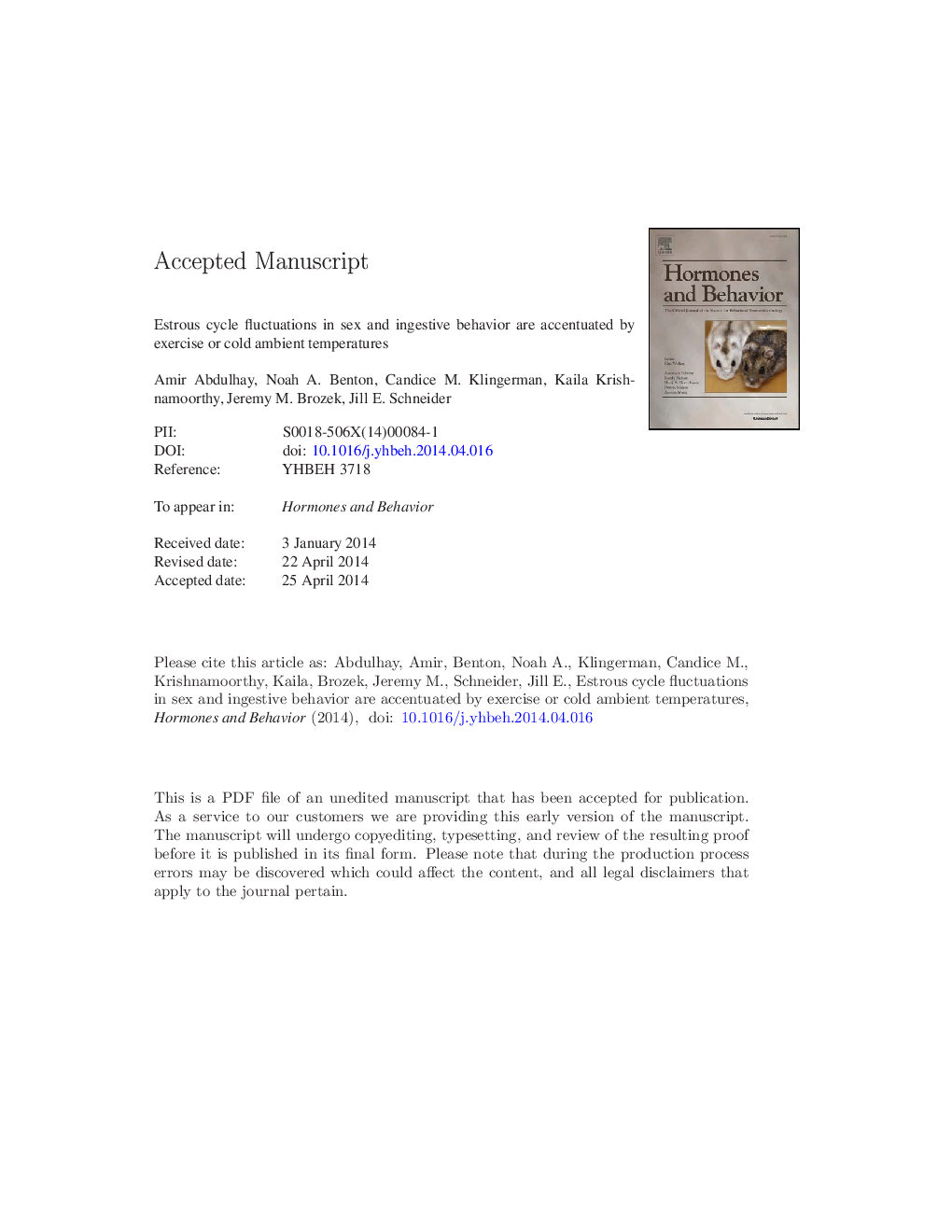| Article ID | Journal | Published Year | Pages | File Type |
|---|---|---|---|---|
| 10301474 | Hormones and Behavior | 2014 | 56 Pages |
Abstract
In female Syrian hamsters (Mesocricetus auratus), low circulating levels of ovarian steroids are associated with increased food hoarding and decreased sexual motivation, but these effects are exaggerated in food-restricted females. To determine whether cold ambient temperature has the same effects as food restriction, groups of hamsters were fed ad libitum while they were housed at either 5 °C or 22 °C, and then tested for behavior for 90 min on each day of the estrous cycle. In females housed at 22 °C, high levels of sexual motivation and low levels of food hoarding were seen every day of the estrous cycle. In females housed at 5 °C, high levels of sexual motivation were restricted to the periovulatory day. On the three nonestrous days, these females showed high levels of food hoarding, but not food intake. A separate cohort of females were provided with access to running wheels and housed at 22 °C. They showed high levels of sexual motivation restricted to the periovulatory day, similar to the pattern of sexual motivation seen in cold-housed females. Unlike cold-housed females, those with running wheels showed low levels of food hoarding and high levels of food intake. Food restriction, cold housing, and access to wheels had no significant effect on plasma estradiol or progesterone concentrations, but significantly decreased plasma leptin concentrations. All three energetic challenges unmask estrous cycle fluctuations in sexual motivation that are obscured in laboratory conditions, i.e., isolation in a small cage with an overabundance of food.
Related Topics
Life Sciences
Biochemistry, Genetics and Molecular Biology
Endocrinology
Authors
Amir Abdulhay, Noah A. Benton, Candice M. Klingerman, Kaila Krishnamoorthy, Jeremy M. Brozek, Jill E. Schneider,
